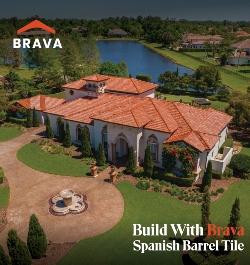Stay informed: September 2025 roofing legal updates
October 22, 2025 at 6:00 a.m.By Emma Peterson.
From permits in Louisiana to lien law in Florida, Trent Cotney gives insights on legal changes across the country.
Trent Cotney, a partner with Adams and Reese, is a well-known name in the roofing world. He specializes in roofing litigation and arbitration and has spent the last three decades working with roofers on construction defect claims, lien/bond law claims, OSHA citations, contractor licensing, bid protests and more. Trent also works as a general legal counsel for multiple roofing organizations, including the West Coast Roofing Contractors Association (WCRCA), the Florida Roofing and Sheet Metal Association (FRSA) and National Women in Roofing (NWIR).
Needless to say, he is an invaluable resource when it comes to understanding the legal landscape in relation to the roofing industry. And he has made it easy for contractors like you to access his insights with his monthly Cotney Briefs! These newsletters are a great way to keep up with shifting legislation and regulations in the industry. Here are some of the topics Trent highlighted in his September 2025 brief!
1 – Permits and licenses in Louisiana
Acts 239 and 422 in Louisiana outline that “any contractor undertaking residential roofing projects valued at $7,500 or more will be required to hold either a residential roofing license or a residential construction license.” This comes into action on January 1, 2026.
What this means for contractors: Make sure that you meet examination requirements and/or have the appropriate classifications to get permits in Louisiana for every residential or commercial roofing and reroofing job.
2 – Lien procedure in Florida
A Florida appeals court has ruled on the case Custom Homes By Triumph, LLC v. Sverdlow. This case was brought about when Custom Homes filed a complaint against the Sverdlows over a possible breach of contract and the closing of a claim of lien. The court’s ruling outlined that “the 20-day deadline for responding to a show-cause summons under Section 713.21(4), Florida Statutes only begins when the summons is actually issued and served, not merely when a complaint or counterclaim is filed without such a summons.”
What this means for contractors: The big takeaway is that if lienor or contractors have filed a lien foreclosure action prior to a show-cause summons being served, the lien is preserved. For contractors, this underscores the importance of monitoring and responding to formal summonses to “safeguard your lien rights.”
3 – Owner-Furnished Materials Disclaimer
In some cases, you might have clients who want to supply materials for a project themselves. This can be due to reasons such as wanting to cut costs or having a preferred product. This is fine, but what is not fine is when those owner-furnished products come late or damaged, throwing off the timeline of a project and the contractor is blamed.
What this means for contractors: Make sure to include an Owner-Furnished Materials Disclaimer to clear up any liability questions. Trent recommends something like:
“Materials Supplied by Owner
If Owner elects to provide any materials for use in the Work, Contractor shall not be responsible for defects in such materials, nor for delays arising from late delivery or shortages. Contractor’s warranty shall exclude failures or deficiencies caused in whole or in part by Owner-furnished materials.”
4 – “Pay-if-Paid” and “Pay-when-Paid” Clauses
Many contractors and subcontractors are struggling with “pay-if-paid” and “pay-when-paid” clauses in their contracts. Pay-if-paid is a condition precedent that says payment to a subcontractor is conditional based on the contractor first receiving payment. As for pay-when-paid, this is a timing clause that delays payment until a “reasonable time.” Both of these clauses shift the payment responsibilities downstream and can lead to a variety of issues if the owner defaults.
What this means for contractors: It is key to remember that even in “jurisdictions that allow pay-if-paid, subcontractors may preserve lien or bond rights and are often the only leverage available if payment is withheld.” Further, it is important to remember that enforcement of these clauses operate differently depending on your state. At the end of the day, this issue illustrates the importance of reviewing payment language and negotiating terms carefully.
Check out Trent's past briefs online to hear more of his valuable insights.
Learn more about Adams & Reese LLP in their Coffee Shop Directory or visit www.adamsandreese.com.
The information contained in this article is for general educational information only. This information does not constitute legal advice, is not intended to constitute legal advice, nor should it be relied upon as legal advice for your specific factual pattern or situation.

About Emma
Emma Peterson is a writer at The Coffee Shops and AskARoofer™. Raised in the dreary and fantastical Pacific Northwest, she graduated in 2024 from Pacific University in Oregon with a degree in creative writing and minors in graphic design and Chinese language. Between overthinking everything a little bit, including this bio, she enjoys watching movies with friends, attending concerts and trying to cook new recipes.






















Comments
Leave a Reply
Have an account? Login to leave a comment!
Sign In